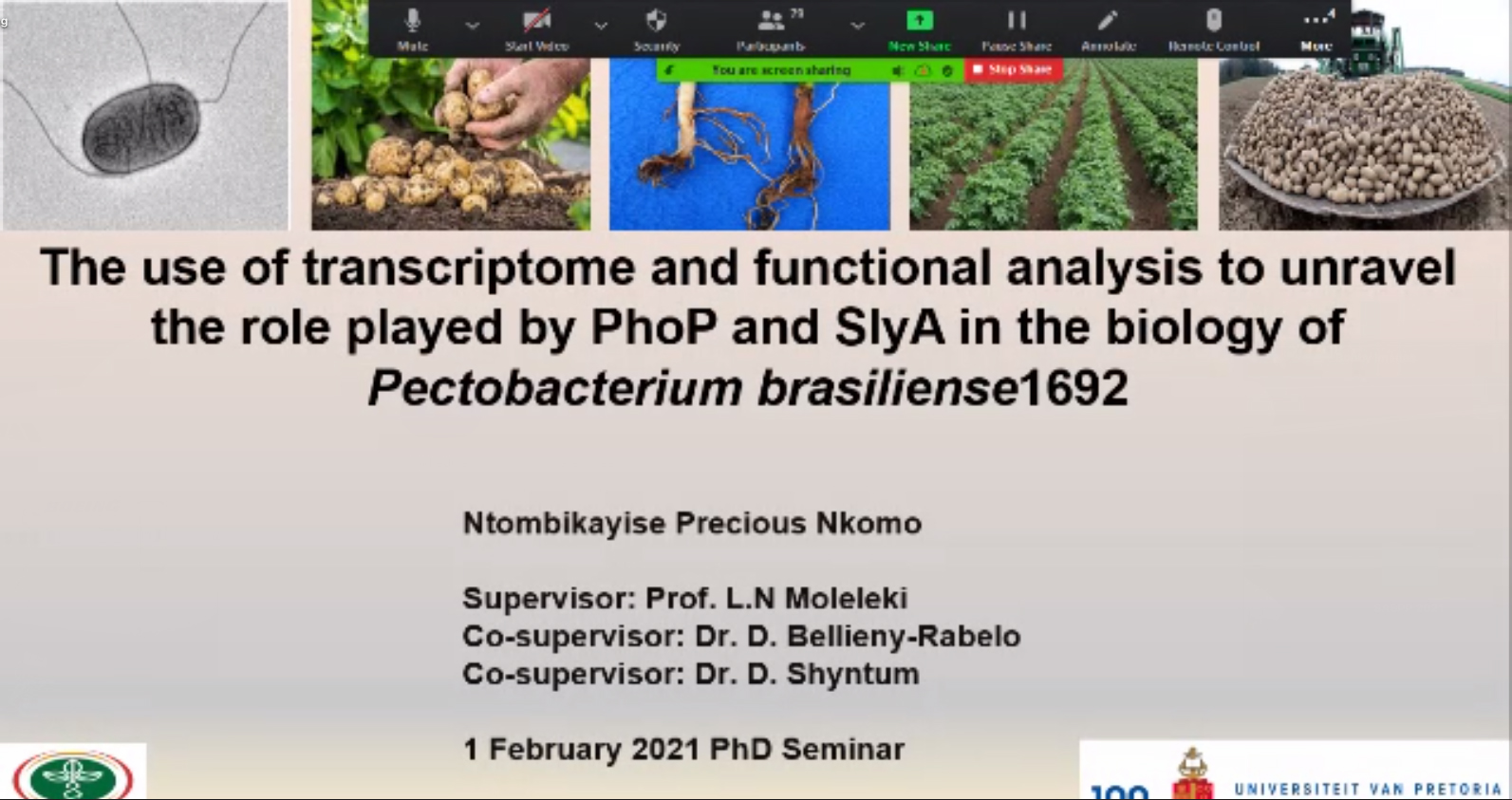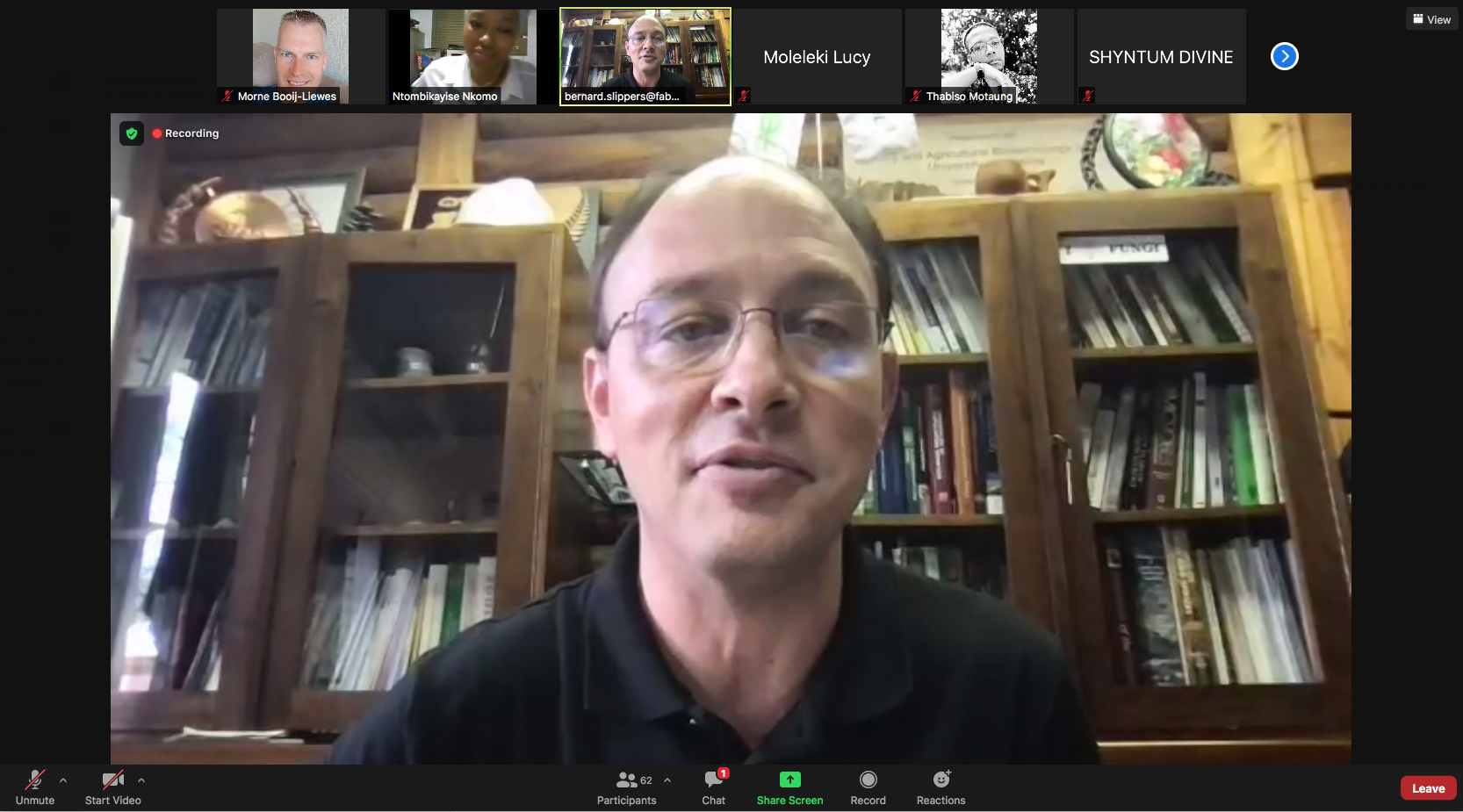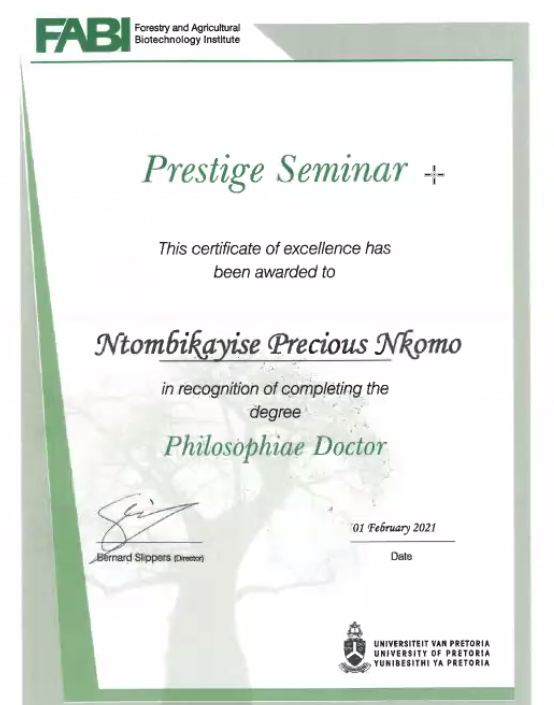Congratulations to Ntombikayise Nkomo on completing her PhD 2021-02-04
FABI celebrated the completion of the second PhD in 2021 with Ntombi Nkomo producing what FABI Director Prof. Bernard Slippers described as a “fantastic piece of work”. Ntombi presented her prestige seminar with the title “The use of transcriptome and functional analysis to unravel the role played by PhoP and SlyA in the biology of Pectobacterium brasiliense1692(Pb1692)” on the online Zoom platform to more than 100 guests on 1 February.
Ntombi’s primary supervisor was Prof. Lucy Moleleki along with co-supervisors Dr Divine Shyntum and Dr Daniel Bellieny-Rebelo. Her external examiners were: Prof. Manjurul Haque (Department of Environmental Science, Bangabandhu Sheikh Mujibur Rahman Agricultural University, Bangladesh), Dr Robert Czajkowski (University of Gdansk, Poland) and Dr Nicole Hugouvieux‐Cotte Pattat (University Claude Bernard Lyon 1, France). Prof. Moleleki congratulated her saying that it had been a pleasure working with her and that she had produced a beautiful piece of research while juggling the responsibilities of a family and completing a PhD.
Several members of the soft rot Pectobacteriaceae family such as Pectobacterium brasiliense1692 (Pb1692) attack a wide range of crops worldwide with P. brasiliense being a major cause of blackleg and soft rot disease in several important plants including beetroot, cabbage, cucumber, peppers, potatoes, sugarbeet, and tomatoes. Despite all the research on Pectobacterium species, little is known on how P. brasiliense is able to colonise and cause disease in susceptible hosts and no chemical control exists to fight the spread of this disease.
The objective of Ntombi’s PhD study was to determine the role of two transcriptional regulators SlyA and PhoP in the biology of Pb1692.This is the first transcriptome study characterising the role of PhoP and SlyA specifically in Pb1692 in planta. The current study has demonstrated that in the absence of PhoP and SlyA, Pb1692 was unable to cause full maceration on potato tubers, suggesting that both these regulators control some important PCWDEs. Based on the information presented, the study could explain at least in part, how Pb1692 utilises PhoP and SlyA in the early stages of infection to colonize potato tubers and adapt during disease development.






